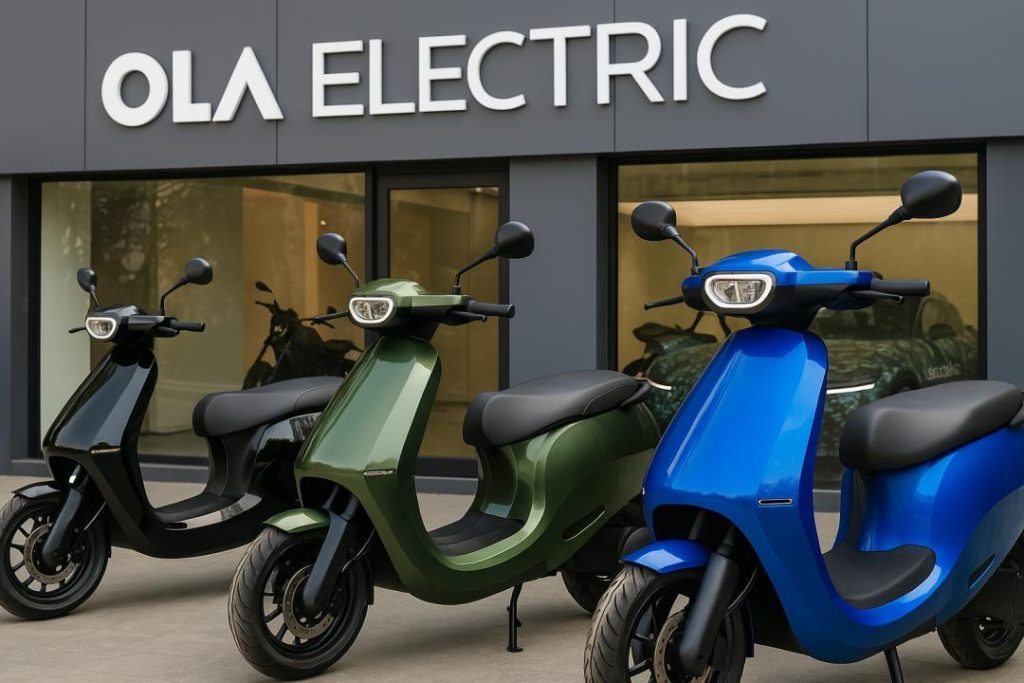
Ola Electric Clears Air on February Sales Controversy
In a recent controversy, Ola Electric, a leading electric vehicle (EV) manufacturer, has been accused of manipulating its February sales data. However, the company has denied these allegations, stating that only fully paid orders were counted and not token reservations. The controversy arose from vendor negotiations affecting vehicle registrations on the VAHAN portal, leading the Transport Ministry to demand clarification and warning of action if unresolved.
The dispute began when Ola Electric announced its February sales figures, which showed a significant increase in the number of vehicles sold. However, some industry insiders and analysts questioned the accuracy of these numbers, citing discrepancies in the data. The controversy gained momentum when it was discovered that the company had not updated its sales data on the VAHAN portal, a government-run platform that tracks vehicle registrations.
The VAHAN portal is used by vehicle manufacturers to register their vehicles and track sales data. However, in the case of Ola Electric, it emerged that the company had not updated its sales data on the portal since January. This led to speculation that the company may have manipulated its sales data to inflate its figures.
In response to the allegations, Ola Electric issued a statement denying any wrongdoing. The company stated that it had only counted fully paid orders in its February sales data and had not included token reservations. A token reservation, in the context of Ola Electric, refers to a customer placing a deposit to reserve a vehicle, with the intention of purchasing it later.
Ola Electric’s statement read, “We would like to clarify that the sales figures announced by us for February are based on only fully paid orders and not token reservations. We have always maintained transparency in our sales data and have never engaged in any practice that could be deemed as manipulation.”
The company also attributed the discrepancy in the VAHAN portal data to vendor negotiations, which had affected the vehicle registrations. Ola Electric stated that its vendors had been facing issues with the VAHAN portal, which had resulted in delays in registering vehicles. The company claimed that it had been working with the vendors to resolve the issue and had also informed the Transport Ministry about the matter.
The Transport Ministry, however, was not convinced by Ola Electric’s explanation and demanded clarification on the matter. The ministry warned the company of action if the issue was not resolved promptly. In a statement, the ministry said, “We have received complaints about Ola Electric’s sales data and have sought clarification from the company. We expect the company to provide a satisfactory explanation and ensure that the issue is resolved promptly.”
The controversy surrounding Ola Electric’s February sales data has raised concerns about the accuracy of sales data in the EV industry. The industry has been growing rapidly in recent years, driven by government incentives and increasing demand for environmentally friendly vehicles. However, the controversy has highlighted the need for greater transparency and accountability in the industry.
In conclusion, Ola Electric has denied allegations of manipulating its February sales data, stating that only fully paid orders were counted and not token reservations. The controversy arose from vendor negotiations affecting vehicle registrations on the VAHAN portal, leading the Transport Ministry to demand clarification and warning of action if unresolved. While Ola Electric’s explanation has been questioned by some, the company has maintained that it has always been transparent in its sales data and has never engaged in any practice that could be deemed as manipulation.
Source: https://ascendants.in/industry_events/ola-electric-february-sales-manipulation-controversy/





